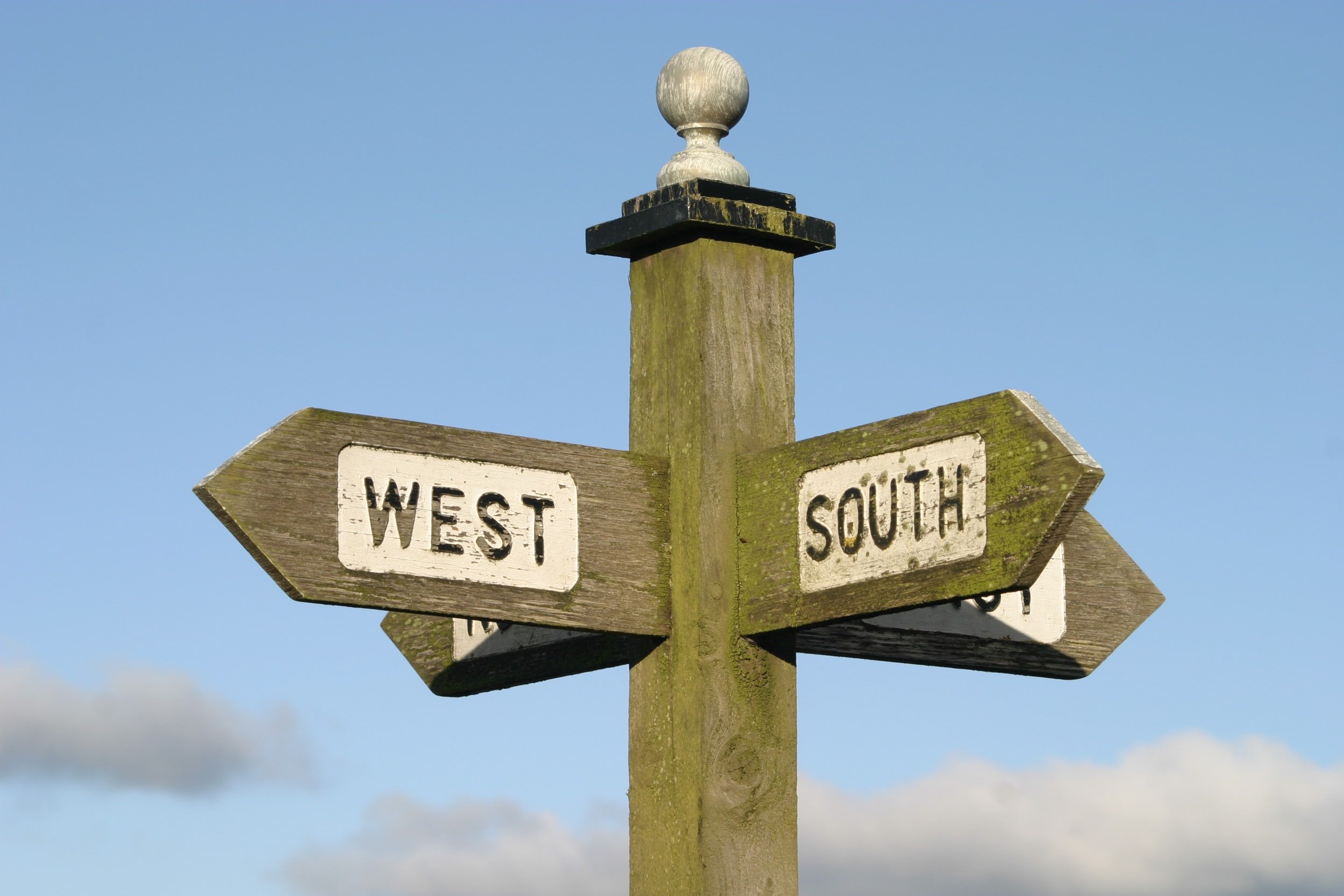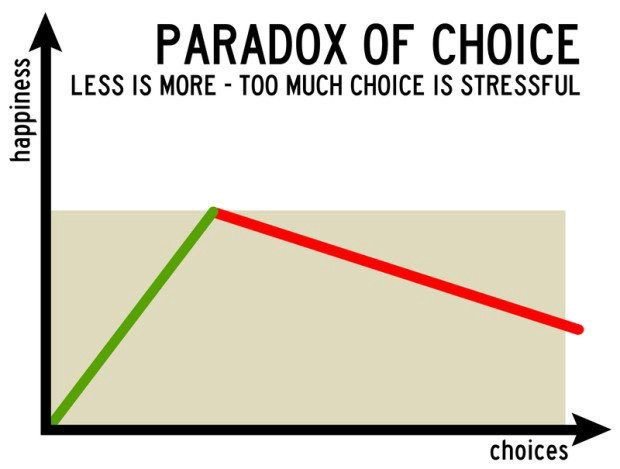Analysis Paralysis: Less Is More
Lost down the rabbit hole of a Google search? Facing a to-do list that only seems to lengthen? You may have analysis paralysis.
Before you jump to WebMD for a full self-diagnosis, let's break down analysis paralysis.
Cultivate founder Steve Garguilo defines analysis paralysis in his book Surge as the consequence of being "stuck overthinking and overanalyzing because we're concerned about what might happen." Fear of risk, failure, and embarrassment overcomes our ability to exact decisions and leaves us mentally inert.
In a world where two thumbs can summon two hundred thousand morsels of information, it may be convincing to believe that being surrounded by all these choices equates to liberation. Yet, researcher after researcher has found that this influx of information produces a Paradox of Choice. On the outside, increased options lead to better results, while internally, they cause increased anxiety, indecision, and dissatisfaction, as illustrated in the chart below.
This chart's peak is when information empowerment is replaced with the fear of making the wrong decision. The red line represents analysis paralysis, a purgatory that can seem difficult to escape.
No realm of life is excluded from this choice phenomenon and its damaging effects. Even federal judges, whose professional duty relies on their ability to make choice after choice, are not immune. Decision fatigue strikes as each verdict cast depletes a judge's limited supply of willpower; in fact, lucky defendants were more likely to be granted parole in the morning or after lunch. In addition to logic, creativity and happiness are slain by the beast of overthinking.
In the workplace, surveyors at LexisNexis found that employees spent more than half of their workday receiving and managing information instead of utilizing it, our Cultivators included. Here is some advice a few Cultivators shared on recognizing and responding to analysis paralysis.
Caroline:
We are afraid of making mistakes! I'm part of that group more often than I'd like to admit. It's hard to face the reality of failure, and I completely agree–we get stuck overthinking.
I started this journey called The Artist's Way last week to get me back into a creative cycle & out of analysis paralysis. It's been around for 25+ years, but I'm just learning about it now. Daily exercises through your creative outlet of choice (mine is writing) to stir & promote all the ideas bubbling inside. There's no wrong way to do the exercises, which generates a sense of safety again -- it gets rid of the fear of failure, and I've loved it so far.
Bethany:
Working with someone with analysis paralysis takes some EQ work. For those in analysis paralysis, it takes some internal work. Who are some of the people you admire? If you don't know their story of how they got there, schedule a conversation with them to hear about the risks they have taken. You might pick up a handy tool to curb your paralysis; you never know, so take a chance and ask!
Most health insurance cover counseling, and many workplaces/insurance offer teletherapy. It's never a bad idea to schedule a few counseling sessions to get some advice on navigating your career through analysis paralysis.
For those struggling with analysis paralysis, be honest! Schedule a conversation to tell your coworker how you're feeling about the work, don't sugarcoat to avoid the conversation. Avoid making this conversation personal; focus on the tasks at hand. If you feel like your ideas aren't making it through, ask them why and what you can do to refine your proposals/ideas. Ask, "what does success for us look like to you?”
Radical Candor is an excellent book with an honest philosophy that I highly recommend. I think it's a philosophy that can be adopted organization-wide!
Penelope:
I think something important for me personally is to remember who I am when things get chaotic, and there is this "analysis-paralysis" behavior sucking everyone in and catching even the best of us off guard at times. It takes discipline to be wild and free - I know that sounds like a walking contradiction, but it really does when it comes to what I call "everyday innovation."
Are we shopping and shooting down our own ideas before we even get them out of our brains? And worse, are we potentially being idea-killers for others? Sometimes you just have to try something and fail to know that route will not work. At my previous company, we called it "failing fast."
In one of the best motivational speeches I have heard by Denzel at a graduation in 2020, he mentioned, "if you don't fail, then you aren't even trying." He repeated himself, "if you don't fail, you aren't even trying! Failure is just success waiting to happen."
Still stuck? Try one or more of these simple life changes to get you out of paralysis and into productivity.
First things first. Start your day with a cup of coffee or tea and the most important decisions on your to-do list while your willpower reserve is brimming.
Build habits. Take a cue from President Obama, who wore the same suit every day to spend more time thinking in his office than in his closet.
Be selective. Determine from whom you wish to learn information first and set boundaries to avoid information overflow. Try to curb information paralysis with this tactic, as well.
Set your own timer. Establish self-deadlines for decision making and notify an accountability partner of your expectation.
Get out of your head. A conversation with a trusted confidante can provide the opportunity to cohesively synthesize your scrambling thoughts as well as provide you with external validation of your fears.
Allow fluidity. Allow yourself to experiment and iterate on decisions rather than definitively adjudicate.
Share your ideas. Solve problems. Make a difference.
We’re building a community where your voice is heard, solutions are shared, and changemakers around the world can mobilize for change. If you are passionate about change, culture, and innovation, this is the place for you.




